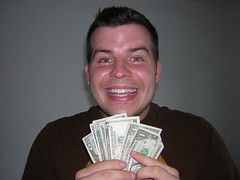Isolationism isn’t a new idea. At it’s root, it is the idea of being alone. Isolated. There have been a few countries that have used Isolationism to cut their country almost completely off from other countries. China, Japan and North Korea all are examples. China and Japan have opened up, but North Korea is still cut off from most of the world. (OT: Did you know that North Korea is technically still at war with us? An Armistice was signed, but no declarations of the end of the war.)
Given a long enough time as an isolationist country, a stagnation can be reached. I don’t believe any of the above mentioned countries ever reached that stage. But, at some point, a country that has no exports and no imports will find an equilibrium of sorts. The capacity of the manufacturing industry will be reached as will the consumption limits of the people. When that happens, the economy of those countries will stagnate as well. The law of supply and demand notes that the supply (and price) of an item can be an important factor in the demand for an item. The opposite is true as well. But, if demand is level, there is no need for increased demand and prices are likely to drop. As the stagnation continues, the country will be forced to open it’s borders to outside trade in order to stimulate the countries economy.
How does all of this relate to personal finance and Beating Broke?
 People can be isolationist as well. We each have a personal economy. And each of our economies is a bit different. When we treat our economy with an isolationist view, we too can stagnate. But, how do we do that? The most extreme example is to take all of your money and put it in a coffee can and then bury it in the back yard. Or to take all of your money and stuff it in between the mattress and the boxspring. That money is isolated from the economies of other people. And while it isn’t necessarily shrinking (as long as you aren’t buying things), it also isn’t growing at all.
People can be isolationist as well. We each have a personal economy. And each of our economies is a bit different. When we treat our economy with an isolationist view, we too can stagnate. But, how do we do that? The most extreme example is to take all of your money and put it in a coffee can and then bury it in the back yard. Or to take all of your money and stuff it in between the mattress and the boxspring. That money is isolated from the economies of other people. And while it isn’t necessarily shrinking (as long as you aren’t buying things), it also isn’t growing at all.
A less extreme example would be that of the person who keeps all of their money in a savings account that pays little interest. With no growth (interest), your personal economy will eventually reach an equilibrium. That equilibrium will be signified by the 0 cash flow situation that will occur when you begin spending as much as you make and are unable to add any more to your little lumpy mattress stockpile. Given enough time, it will actually swing the other way as you find yourself pulling a bill or two out to buy stuff.
But, all of this is fixable. All you have to do is be open to ways to grow your personal economy. You can be open to increased imports (interest + wages). Growing your exports (value of your work) can help grow your imports. Finding a good savings account to put your savings in will grow your imports (interest).
Don’t let your economy stagnate! Take the little extra time that it will take to find a better rate for your savings. Find a way to increase your work output without increasing your hours, or take on overtime or a second job to increase your income . Maybe you can increase your financial knowledge and education with a finance degree. The basic idea here is that you have to be open to new ideas, new products, and to the value that your economy has to you.
The effect that isolationism can cause to a region/country. Without outside import/export, optimization occurs and stagnation ensues.
Image Credit: Mo Money Mo Problems by greggoconnell, on Flickr

I started this blog to share what I know and what I was learning about personal finance. Along the way I’ve met and found many blogging friends. Please feel free to connect with me on the Beating Broke accounts: Twitter and Facebook.
You can also connect with me personally at Novelnaut, Thatedeguy, Shane Ede, and my personal Twitter.


Personal Finance Buzz…
Your story was featured in Personal Finance Buzz! Please visit and promote your article….